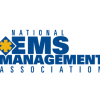The Government Accountability Office (GAO) began notifying ambulance service providers in March that they had been selected to participate in a new report on costs and Medicare reimbursements. The new study will update the GAO’s 2007 cost survey, “Ambulance Providers: Costs and Expected Medicare Margins Vary Greatly,” an undertaking mandated by Congress as part of the Middle Class Tax Relief and Job Creation Act, signed into law in February.
Ambulance service providers called for such a cost study long before the 2007 report was published as a means of drawing attention to the discrepancy between the high cost of providing service and the low federal reimbursement they receive. The purpose of the new study is to inform Congress so legislators can determine future Medicare reimbursement rates. A publication date has not been set.
Another USFA Reauthorization Try
A bipartisan group of Senate Homeland Security Committee members introduced in March a new bill that would reauthorize funding for the U.S. Fire Administration (USFA) through fiscal year 2017. For each year, the bill would extend funding at 2012 levels, which is $76,490,890. The current authorization of the USFA expires Sept. 30.
Reauthorization of the agency is supported by first responder organizations, including the International Association of Fire Chiefs, the Congressional Fire Services, the International Association of Fire Fighters and the National Volunteer Fire Council. This bill is the most recent attempt to save the agency. Several other bills have been introduced to the same end, but none have passed. The reauthorization bill was referred to the Senate Committee on Homeland Security and Governmental Affairs; the House has no similar bill.
Veterans’ EMT Grants Proposed
Veterans with military emergency medical training will be eligible for streamlined EMS state requirements and procedures if the Veteran Emergency Medical Technician Support Act of 2012, under consideration in the House of Representatives, is passed into law.
The bill would provide demonstration grants to states that agree to streamline their certification, licensure and other requirements to becoming an EMT for qualified veterans. The states would need to determine the education, training and skill equivalencies between military and civilian EMTs and identify methods for crediting veterans for their military training and experience, which could include waivers from certain requirements. To be eligible for the grant program, states would need to demonstrate an EMT shortage.
The bill would fund the program at $200,000 per year for each of fiscal years 2013 through 2017. The secretary of the Department of Health and Human Services, where the program would be housed, would be required to report to Congress annually on the program’s progress.
The bill was introduced in the House in March and was referred to the House Subcommittee on Health. The Senate is not yet considering similar legislation.
EMS Gains on Pandemic Bill
The National Health Security Strategy (NHSS), part of the Pandemic and All Hazards Preparedness Act (PAHPA), which was passed by the Senate in March, has been modified to strengthen EMS—due, in part, to efforts of EMS and trauma association colleagues, according to Advocates for EMS.
PAHPA was signed into law in December 2006 and created an Assistant Secretary for Preparedness and Response within the Department of Health and Human Services. That office was charged with developing the NHSS to present to Congress in 2009 and revising it every four years. The goals of the NHSS are to build community resilience and strengthen public health and emergency response systems.
Under the Senate version, as modified before passage, the NHSS will increase the EMS systems surge capacity and perfect a coordinated and flexible approach to surge capacity that includes EMS, says Paolo Mastrangelo, legislative assistant at Holland & Knight, the Washington consultant to Advocates for EMS.
The House passed its own version of the bill in December 2011. As of this writing, both Houses were in negotiations to work out their differences over the two bills.












